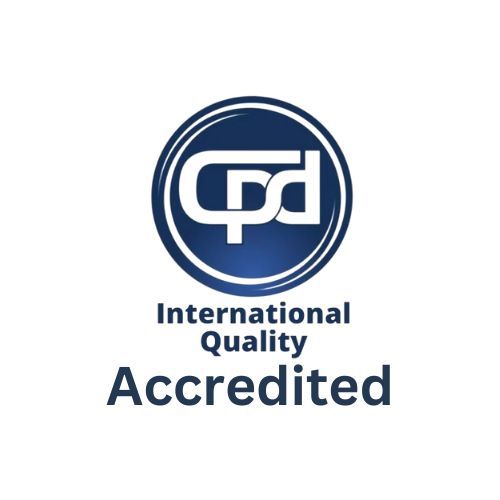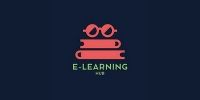Certificate in Biomedical Engineering
- Introduction to Biomedical Engineering: 🧬🔬 Delve into the fundamental concepts of biomedical engineering, understanding its role in revolutionizing healthcare technologies and improving patient outcomes.
- Biomaterials and Biomechanics: 💊💪 Explore the materials and mechanics used in biomedical applications, including the design of implants, prosthetics, and medical devices.
- Medical Imaging and Signal Processing: 📷💻 Dive into the world of medical imaging techniques such as MRI, CT scans, and ultrasound, and learn how signal processing plays a crucial role in analyzing biomedical data.
- Biomedical Instrumentation: 🛠️🔌 Gain insights into the design and development of instruments used in medical diagnosis, monitoring, and treatment.
- Biomedical Ethics and Regulations: 📜💼 Understand the ethical considerations and regulatory frameworks governing biomedical research, development, and implementation.
- Biomedical Applications and Innovations: 💡💉 Explore real-world applications of biomedical engineering, from wearable health devices to advanced medical technologies.
Course Curriculum
About Course
Product Overview: Certificate in Biomedical Engineering
Welcome to the Certificate in Biomedical Engineering course! 🎓 This comprehensive program offers a profound exploration into the interdisciplinary field of biomedical engineering, blending principles of engineering, biology, and medicine. With a focus on innovation and problem-solving, this course equips students with the necessary skills and knowledge to make significant contributions to the healthcare industry.
Course Sections:
- Introduction to Biomedical Engineering: 🧬🔬 Delve into the fundamental concepts of biomedical engineering, understanding its role in revolutionizing healthcare technologies and improving patient outcomes.
- Biomaterials and Biomechanics: 💊💪 Explore the materials and mechanics used in biomedical applications, including the design of implants, prosthetics, and medical devices.
- Medical Imaging and Signal Processing: 📷💻 Dive into the world of medical imaging techniques such as MRI, CT scans, and ultrasound, and learn how signal processing plays a crucial role in analyzing biomedical data.
- Biomedical Instrumentation: 🛠️🔌 Gain insights into the design and development of instruments used in medical diagnosis, monitoring, and treatment.
- Biomedical Ethics and Regulations: 📜💼 Understand the ethical considerations and regulatory frameworks governing biomedical research, development, and implementation.
- Biomedical Applications and Innovations: 💡💉 Explore real-world applications of biomedical engineering, from wearable health devices to advanced medical technologies.
FAQs (Frequently Asked Questions):
Q: Who is this course suitable for? A: This course is suitable for individuals with a background or interest in engineering, biology, or medicine who aspire to work at the intersection of these fields.
Q: What are the prerequisites for enrolling in this course? A: While there are no strict prerequisites, a basic understanding of mathematics, physics, and biology would be beneficial for grasping the concepts covered in this course.
Q: Is this course available online or on-campus? A: The availability of this course may vary depending on the institution offering it. Some institutions may offer it as an online course, while others may have it available on-campus or in a blended format.
Q: What career opportunities can this course lead to? A: Graduates of this course can pursue careers in various sectors, including medical device companies, pharmaceutical companies, hospitals, research institutions, regulatory agencies, and academia.
Q: How long does it take to complete this course? A: The duration of the course may vary depending on the institution and the mode of study. Typically, it can range from several months to a year for a certificate program.
Q: Will I receive a certification upon completion of this course? A: Yes, upon successfully completing the course requirements, you will be awarded a Certificate in Biomedical Engineering, which can enhance your credentials and career prospects in the field.
Q: Can I pursue further studies after completing this course? A: Absolutely! This course can serve as a solid foundation for those interested in pursuing advanced studies in biomedical engineering or related fields at the graduate level.
Q: How practical is this course? Will there be hands-on experience? A: Many institutions offering this course incorporate hands-on lab sessions, projects, and internships to provide practical experience and enhance skill development in biomedical engineering concepts.
Q: Is financial aid available for this course? A: Financial aid options such as scholarships, grants, and tuition assistance may be available depending on the institution offering the course. It’s recommended to inquire with the respective institution for more information on financial aid opportunities.
Q: Can I enroll in this course while working full-time? A: Depending on the flexibility of the course schedule, it may be possible to enroll while working full-time. Online or evening classes may be available to accommodate working professionals. However, it’s essential to consider the time commitment required for coursework and assignments.
Course Content
Biomedical Engineering
Biomedical Engineering
00:00
Module 01 Human Anatomy and Physiology
Module 02 Biomedical Science
Module 03 Biomedical Sensors
Module 04 Epidemiology
Module 05 Bioinstrumentation
Module 06 Medical Imaging
Module 07 Biomaterials
Module 08 COSHH Awareness


